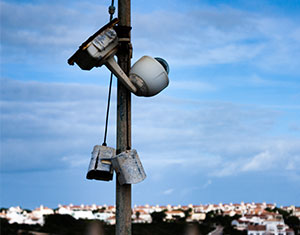35+ Years As One of the Premier Atlanta Personal Injury Attorneys
With over 35 years of experience, our Atlanta personal injury law firm is proud to provide the ideal combination of personal, accessible legal representation and cost-effective legal services. Recognized in the Bar Register of Preeminent Lawyers, Atlanta personal injury attorney Stephen D. Apolinsky and Apolinsky & Associates, LLC, are AV-rated by Martindale-Hubbell Peer Review Ratings, the highest available rating for legal skill and ethics.
With over 80 trials and countless settlements won to compensate victims and their families for wrongful death and catastrophic injuries, we’ve built a track record of success in recovering compensation for our clients. The majority of the firm’s cases are handled on a contingency basis, which means that you will never be charged unless the firm recovers money on your behalf.
If you were involved in an accident or injured due to the negligence of a third-party in the Atlanta area, including DeKalb County, Georgia, please contact an Atlanta personal injury lawyer at Apolinsky & Associates, LLC, by email at steve@aa-legal.com or by calling (404) 377-9191. Your initial consultation with the personal injury attorneys of Apolinsky & Associates, LLC, is free of charge.
Our Georgia Personal Injury Practice Areas
A personal injury refers to physical injuries, mental injuries, or property damage inflicted upon you by the negligence of another party. In cases of personal injury, victims may be able to seek compensation for their damages by filing a personal injury lawsuit against the at-fault party.
Premises Liability & Negligent Security
We represent victims and families of criminal attacks to win compensation for individuals who have been shot, raped, stabbed, battered, or assaulted. These types of personal injuries frequently occur in:
- Apartment Complexes
- Gas Stations
- Bars & Nightclubs
- Parking Lots
- College Campuses
- Hotels
- Shopping Malls
- Office Buildings
By filing a premises liability claim on behalf of our clients, we are able to recover compensation by showing that the security in place was not adequate and that there was a breach of duty by the owner or occupier of the property.
Further Reading: Examples of Negligent Security that Lead to Serious Injury
Motor Vehicle Accidents
Unfortunately, injuries from car and commercial truck accidents do occur, and they are oftentimes severe and life-altering. Apolinsky & Associates, LLC, represents victims of severe injury and wrongful death in all types of motor vehicle accidents, including:
If you or a loved one has been involved in an accident with a commercial truck or automobile, you may be entitled to recover compensation for your injuries by bringing a legal claim against the responsible parties.
Catastrophic Injuries
Catastrophic injuries have a lasting impact on both victims and the families of those injured. Among the catastrophic injuries our Atlanta personal injury firm handles are:
- Traumatic Brain Injury
- Spinal Cord Injury
- Loss of Limb or Amputation
- Severe Burns
- Broken Bones and Fractures
- Permanent Eye Damage
Further Reading: Common Types of Catastrophic Injuries Due to Negligence
Proving Negligence & Causation in Atlanta Personal Injury Lawsuits
To hold another party legally responsible for your injuries in Georgia, you must prove that they were ‘at fault’ for your injuries. What types of actions (or inactions) constitute negligence will always depend on the specific facts of the case. As such, it is imperative that victims work with an experienced Atlanta personal injury lawyer. To prove negligence, your attorney must establish the following four basic elements:
- The defendant owed you a duty of care.
- The defendant breached that duty of care.
- The defendant’s breach of duty contributed to your injuries.
- You sustained real harm in the accident.
It should be noted that even if you are partially responsible for the accident that led to your injuries, you may still be entitled to compensation under Georgia’s comparative negligence law (Ga. Code Ann. Sec. 51-12-33). The statute, which establishes a modified comparative negligence rule with a 50 percent bar, holds that you can be up to 49 percent liable for what happened and still collect damages for your injuries.
Your compensation will be proportionately reduced according to your degree of fault. An attorney can advocate on your behalf to reduce any finding of comparative fault, ultimately maximizing your damage award.
Further Reading: Understanding Georgia’s Modified Comparative Fault Rules in Civil Litigation
Compensation and Damages Recoverable in Georgia Personal Injury Cases
Injured victims deserve financial compensation that is equivalent to the full value of their losses. In Georgia, personal injury compensation is available for both direct economic losses and intangible (noneconomic) damages. Of course, most personal injury cases are defended by corporations or big insurance companies, which will always fight aggressively to try to limit settlement offers.
To get fair compensation, injured victims should always obtain high-quality legal representation. Our personal injury lawyers help victims seek recovery for:
- Emergency room costs.
- Ambulance fees.
- Mental anguish
- All other medical bills.
- Disfigurement.
- Long-term disability (LTD).
- Loss of limb.
- Lost current and future wages.
- Loss of life. enjoyment.
- Pain and suffering.
In the state of Georgia, personal injury claims are governed by the state’s strict statute of limitations (Ga. Code Ann. Sec. 9-3-33), which limits the amount of time you have to bring legal action. For the most part, you must file your lawsuit within two years of the date of the accident. (This is true for wrongful death suits as well.) While there are some limited exceptions to this rule, such as cases involving minors or cases in which the injury was not discoverable, it’s important not to delay a consultation with an injury attorney.
If you fail to file your lawsuit before the statute of limitations runs out, you will likely not be able to bring a legal claim at all. Do not let yourself miss out on the compensation that is owed to you because you waited too long to get started. Get your case into the hands of a top-quality Atlanta personal injury attorney as soon as possible after your accident. This will allow your attorney to begin an immediate and comprehensive investigation of your case.
Further Reading: What is Pain and Suffering and How Is Compensation Value Calculated?


















